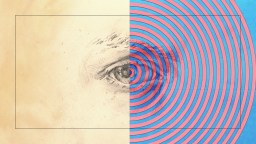Study finds sense of touch develops before birth

Pixabay
- Scientists looked at brains of mice to track embryonic development of the sense of touch.
- They found that a “map” for the sense of touch is in place before birth.
- Human cerebral cortexes are similarly organized, indicating that the same process likely takes place.
Figuring out exactly how we get the sense of touch has not been conclusively understood so far, despite previous studies. A new study suggests that it develops in the brain before birth.
The research was carried out on mice by a team from the Institute of Neurosciences of Alicante of the ISIC in Spain. They focused on understanding embryonic brain development and found that a “map” controlling the senses is there before the baby is born.
Prior studies indicated that once a sense of touch develops a kind of map becomes a part of the cerebral cortex. The theory was that data points from sensory input are added to this map during the newborn’s development.
The new research from Spain shows that this sensory map was created in mice while they were still in embryonic stages. They also found that the map’s appearance was linked to signals sent to the cerebral cortex from the thalamus – the part of the brain that relays sensory and motor signals and regulates consciousness and sleep.
The scientists think the same process likely takes place in humans since “the organization of the cortex is conserved evolutionarily between species.”
How a child’s brain develops through early experiences
Mice were used for the experiments because their sensory maps are contained within cortical barrels that can be made darker by staining. These can be seen under a microscope, allowing the scientists to study different stages of brain development.
Check out the study in the journal Science.





